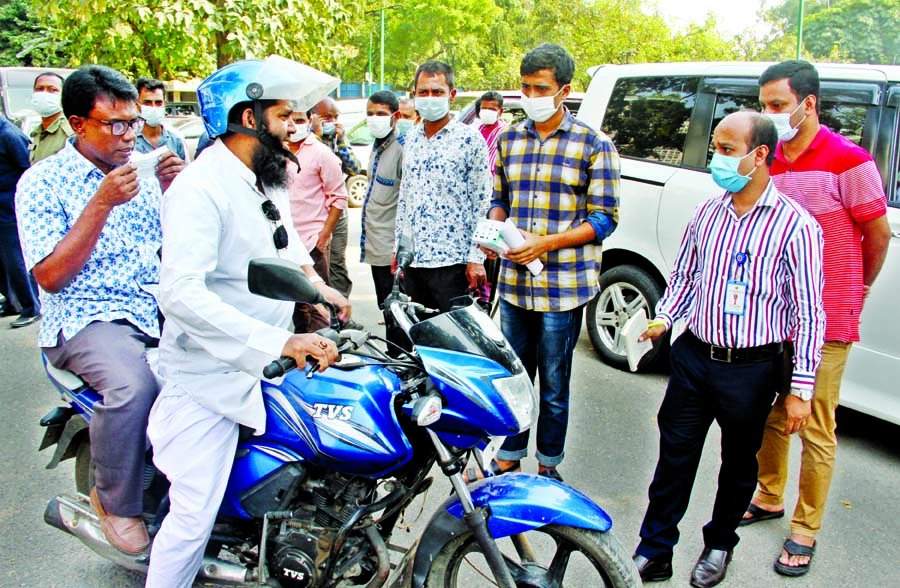
Noman Mosharef :
As the threat of a second wave Covid-19 looms, public health experts have recommended rapid antigen tests to track the suspected coronavirus patients.
This new strategy would also help supplement the Real-Time Reverse Transcriptase-Polymerase Chain Reaction (RT-PCR) tests and to reduce the burden on the laboratories, they added.
European countries straining to contain a second wave of Covid-19 are turning to faster, and cheaper antigen tests to diagnose and trace those infected by the virus.
“When suspected patients turned negative followed by an antigen test, they would be allowed to move freely. Countries like France, Great Britain, the United States, Slovakia have been encouraged to follow this strategy, scheduling rapid tests in pharmacies, train stations, airports and specialized centers,” said former World Health Organisation (WHO) Regional Advisor Dr Muzaherul Huq.
He said antigen tests are inexpensive and able to diagnose the virus from the beginning of the infection and in a few minutes. These tests would allow us to strengthen our diagnostic capacity.
“The test should be used at airports, bus and railway stations and businesses to quickly trace a suspected patient,” said Dr Muzaherul Huq adding that this strategy can help us to fight the second wave of coronavirus infection.
On Tuesday, Bangladesh reported 39 more deaths, the highest daily figure since 21 September, from the novel coronavirus and 2,212 people tested positive amid fears of a second coronavirus wave in the country.
The country’s maiden cases were reported on March 8 this year and the first death from the virus was reported on March 18.
Besides, 21 people died from Covid-19 in the last 24 hours till Wednesday 8am taking the total number of deaths to 6,275, according to a press release issued by the Directorate General of Health Services (DGHS).
At least 2,111 new infections were recorded in the meantime taking the total number of people infected to 4,38,795, added the release.
A total of 16,469 samples were tested across the country till Wednesday 8am.
Rayhan Uddin Rasel, a resident from Khilgoan area said, “after suffering from fever for two days I gave sample to Directorate General of Health Service (DGHS) for testing. DGHS did not text me about my result though 72 hours have elapsed, whereas there is rule to inform result within 72 hours. Later, I phoned to DGHS hotline and got myself as Covid-19 positive.”
“Why there no proper and quick testing system is adopted after nine months of first coronavirus patient was diagnosed in the country,” he questioned.
Public Health expert Dr. Be-Nazir Ahmed said, a large number of people were out of testing procedure in the primary steps of Covid-19 test. As a result it was not possible to control of coronavirus transmission. People, who remained out of test, are more responsible for spreading the deadly virus.
“Now it is necessary to introduce fast and low cost antigen test to trace an infected person as the country is heading towards a second coronavirus wave. This strategy along with proper contract tracing system can control the second wave of virus transmission here,” said Dr. Be-Nazir Ahmed.
At the same time, he said, people who get infected with coronavirus must be kept in isolation with proper health guideline. There is no alternative to use mask in outdoor to contain the virus.

